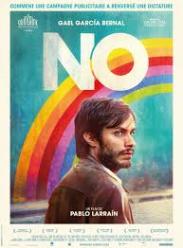Talented Chilean director Pablo Larraín takes on a sacred cow of British royalty following on from his movie on Jackie Kennedy a few years back. I remember liking some things about that movie but by no means all of it and the same sensation comes with this latest effort. The screenplay is written by Steven Knight and is an irreverent take on Diana’s relationship with the royal family. Based on real events but very much a fable of poetic licence, it features a three-day visit to Sandringham, the royal palace where the family celebrates Christmas. Supposedly this is 1991.
What we get are broad-brush strokes amplifying the obvious points of friction at that time. Diana is clearly going off the edge and is seeing ghosts (Anne Boleyn), ignoring the protocol, trying to have a sane relationship with her boys, frostily distanced from Charles and vomiting up all her food at regular intervals.
The Queen has little time for her and the staff are mixed.
Major Gregory (Timothy Spall) is all eyes and ears trying to keep her in line and being rather threatening in the process while the head chef and Maggie, one of her dressers are trying to keep Diana on the rails.
Most of the other members of the royal family are either eating or shooting and the film shows up the lavish banquets they were served and the pointless pheasant shooting raids that William does not want to be part of. Many critics have called this a fairly one-note film and I tend to agree. There is no real dramatic tension, simply a depiction of a woman going out of her mind in a context that would drive most people mad (the strictures of living inside the Royal Court).
We do see Diana in more human and saner moments when with her sons or with Maggie but the rest of the time she is stalking the corridors like a wild beast cornered and pursued.
Kristen Stewart has been nominated for an Oscar for this and her performance is clearly the high point of the movie and how she manages to tread a fine line between respecting the original Diana and giving us this side of her.
We never get to see the Diana of public service here. Sally Hawkins steals every scene she is in as Maggie and displays why she is such a talent.
The music by Jonny Greenwood which blends classical and jazz music in quite disturbing tones adds to the mood.
At the end of the day, I can’t say the film moved me very much. It is a clever angle on the well-known story but it did not move me emotionally or excite me cinematographically.
3 stars
















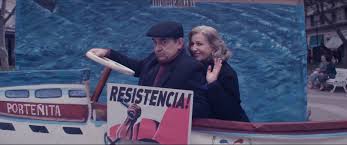
 to Buenos Aires where his second wife Delia (Mercedes Moran,
to Buenos Aires where his second wife Delia (Mercedes Moran, 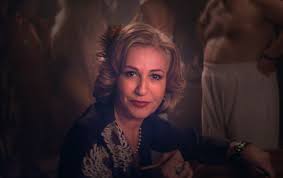 very good but too young, she needed to be well in her sixties) was from. So, we get snatches of the political and social reality of that event and that time, but in something of a jumbled order.
very good but too young, she needed to be well in her sixties) was from. So, we get snatches of the political and social reality of that event and that time, but in something of a jumbled order. 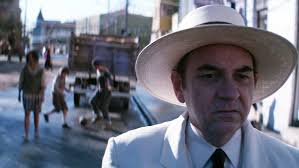 On top of that Larrain has attached a sort of fantasy in which a rather slow policeman is detailed to track Neruda and ends up fantasising about the poet and about the chase. This role is given to Gael Garcia Bernal,
On top of that Larrain has attached a sort of fantasy in which a rather slow policeman is detailed to track Neruda and ends up fantasising about the poet and about the chase. This role is given to Gael Garcia Bernal, who is a bit too smart an actor for that character really. The film is shot much like a film noir, there is some moving music from Federico Jusid and Luis Gnecco convinces in the lead role.
who is a bit too smart an actor for that character really. The film is shot much like a film noir, there is some moving music from Federico Jusid and Luis Gnecco convinces in the lead role.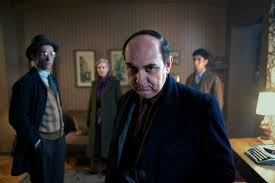 But for me the playing around with fantasy and reality doesn’t work, especially as the film drags for much the time.
But for me the playing around with fantasy and reality doesn’t work, especially as the film drags for much the time.
 etc, etc.
etc, etc. widow of a young loved President forced to make decisions that no one would like to take, with two young children to protect and the world’s eyes on her.
widow of a young loved President forced to make decisions that no one would like to take, with two young children to protect and the world’s eyes on her.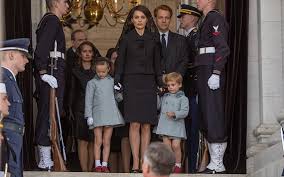 Natalie Portman may irritate with her breathy accent but apparently it is authentic and much of what we see comes from memoirs and other material not available at thirty or forty years ago. So, there is an interest in that and I think in the scenes where Jackie has a sort of confessional with an Irish priest (ably played by the late John Hurt).
Natalie Portman may irritate with her breathy accent but apparently it is authentic and much of what we see comes from memoirs and other material not available at thirty or forty years ago. So, there is an interest in that and I think in the scenes where Jackie has a sort of confessional with an Irish priest (ably played by the late John Hurt).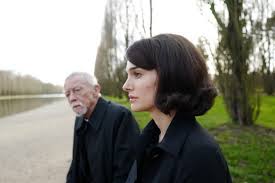 This gives us an idea of how Jackie changed in that week and how she found resources inside her to handle the immense pressure. Portman’s portrayal may not be to everyone’s tastes but it is deep and moving. Peter Sarsgaard gives us a stressed and grieving Bobby which is interesting and Greta Gerwig is very low key as Jackie’s aide, Nancy. Mica Levi gives us some strong music for the soundtrack but it works too.
This gives us an idea of how Jackie changed in that week and how she found resources inside her to handle the immense pressure. Portman’s portrayal may not be to everyone’s tastes but it is deep and moving. Peter Sarsgaard gives us a stressed and grieving Bobby which is interesting and Greta Gerwig is very low key as Jackie’s aide, Nancy. Mica Levi gives us some strong music for the soundtrack but it works too.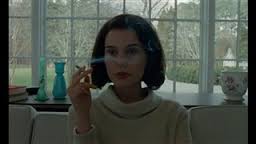 Psychological and full of Larrain’s favourite washed out colours.
Psychological and full of Larrain’s favourite washed out colours.



